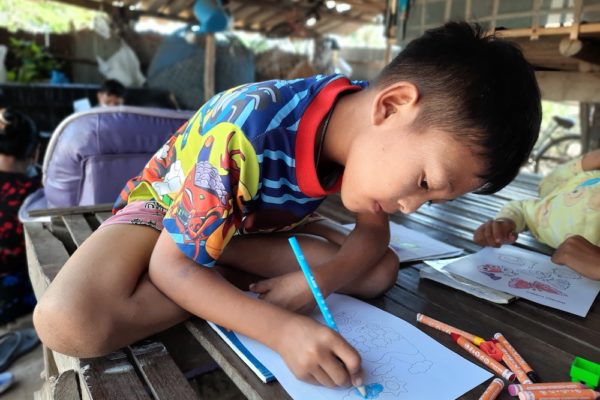Friday Classes Under the Shade Tree
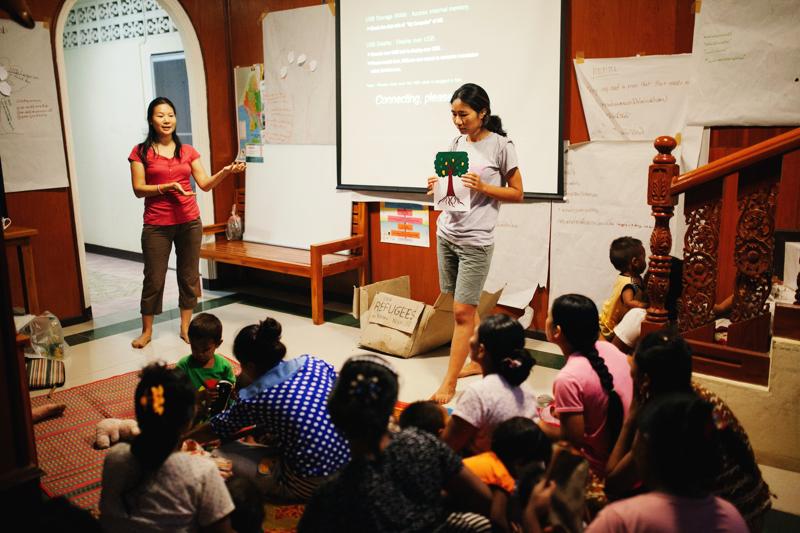
Since November, The Charis Project has been hosting a series of classes on Friday evenings at our local community center, taught by Sia, a local social worker and founder of Freedom Restoration Project. The community center name translates to “Shade Tree”, a place of rest and respite for families who need a break from the heat of the day, both figuratively and literally.
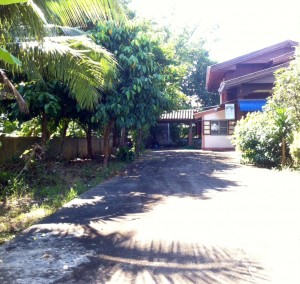
Shade Tree : A place for families to find refuge from the challenges of life, to receive love, and to have access to education.
Most people we work with with have experienced, and continue to experience, war violence, displacement, lack of citizenship, physical and sexual abuse, domestic violence, the loss of one or more parent, divorce, and malnutrition. Their days are often full of the heat and challenge of life. A little bit of shade, rest, and love go a long way to restoring their individual souls, their family relationships, and their communities. Many of them spend long days working in the field, caring for their families, or working as housekeepers, before coming to the class on Friday evening. Yet they show up ready and eager to learn,many with their toddlers and babies in tow. In an environment where violence toward children is the norm this is very significant.
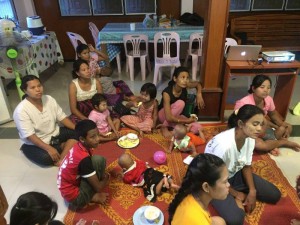
These parent class have spent months learning about the developing brain of the child, the psychological and physiological reasoning behind why children behave the way they do, and appropriate responses to undesirable behavior.
During one class the students divided into groups and were given a scenario. It involved a child or groups of children who were demonstrating undesirable behavior. They were to think about what might be the developmental reality affecting the child and then devise an appropriate response. The groups then presented their scenario, as well as the reasoning behind the behavior and their response, to the rest of the class.
As they taught the material, in their own words, their classmates nodded in agreement. An older woman with a couple of missing teeth, and a few holes in her clothes shared enthusiastically. Her strong voice and the certainty of her words made it obvious why she was chosen to represent her group. Here was a woman able to educate and lead.
After one group presented, one of the many toddlers crawling around the room started pushing the button on the water cooler to make the water flow out. Sia pointed out that this behavior actually shows the intelligence and developmentally appropriate curiosity of a child her age. If she pushes the button, the water comes out. But does it work every time?
She went on to explain that if a child receives an immediate angry response of either yelling or reactive hitting for such behavior, she will learn that it is bad to be curious, to explore her environment, and experiment with her surroundings. As the parents in this class understand their children’s behavior, they can begin to overcome generational cycles of using anger and reactive hitting to train their children.
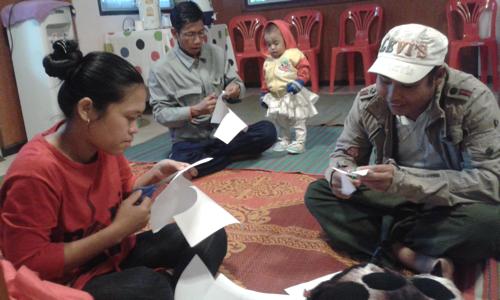
Dad’s come to learn as well.
In the last two weeks, the teachers have moved onto teaching the students about the effects of trauma on children. As many families in the community have experienced trauma in various forms, it is very important for these parents to be aware of the effects these situations can have on their children.
One family who has been attending is known by everyone in the community as being particularly violent. But after the mother attended the class a few times the father also began attending. As they learned how damaging it can be to children to witness and experience violence, they started to try to change. They told Sia and TinTin that when they were lying down in their house to go to sleep they apologized to their children for beating them. They said, “We didn’t know that we were causing harm to you. We will not do that anymore.”
This is how you are helping to heal families and make them strong places that protect their own children. Thank you.

